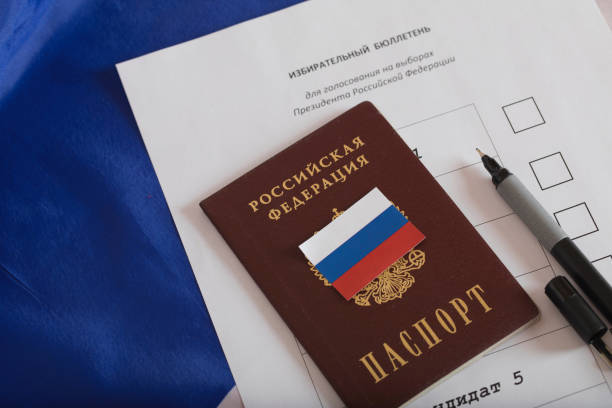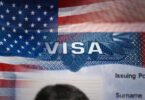Luxembourg, a small but prosperous European nation, is an attractive destination for professionals and families alike. Known for its high standard of living, robust economy, and multicultural environment, it’s no surprise that many people dream of moving to Luxembourg. For non-EU citizens, relocating often requires visa sponsorship, typically through employment.
If you’re wondering how to move to Luxembourg with visa sponsorship, this comprehensive 1355-word guide will walk you through the process, from finding a job to settling in, optimized for SEO to help you find the answers you need.
Why Move to Luxembourg?
Before diving into the steps, let’s explore why Luxembourg is worth considering. This tiny country, nestled between France, Belgium, and Germany, boasts one of the highest GDPs per capita in the world. It offers free public transportation, affordable healthcare, high wages, and a welcoming expat community, 44% of its population are foreigners!
Additionally, Luxembourg’s strategic location within the Schengen Area makes travel across Europe seamless. For career-driven individuals, the demand for skilled workers in sectors like IT, finance, engineering, and healthcare makes it an ideal place to secure a job with visa sponsorship.
Understanding Visa Sponsorship in Luxembourg
Visa sponsorship means an employer in Luxembourg supports your application for a work visa, allowing you to legally live and work in the country. For non-EU/EEA citizens (often referred to as third-country nationals), this is the most common pathway to relocate.
The process involves securing a job offer from a Luxembourg-based employer who is willing to sponsor your visa, followed by navigating the immigration system. Below, we’ll break down the steps to make this journey smoother.
Step 1: Research the Luxembourg Job Market
The first step to moving to Luxembourg with visa sponsorship is understanding the job market. Luxembourg’s economy thrives on industries like:
Finance and Banking: Home to numerous banks and investment firms.
Information Technology: A growing hub for tech professionals.
Engineering: High demand for mechanical, civil, and electrical engineers.
Healthcare: Nurses, doctors, and specialists are sought after.
Logistics and Construction: Opportunities for skilled and unskilled workers.
Start by identifying your skills and matching them to in-demand roles. Websites like Jobs.lu, LinkedIn, and Monster.lu are excellent resources for finding visa sponsorship jobs. Companies such as Amazon, PwC, Deloitte, and ArcelorMittal, which have a strong presence in Luxembourg, frequently sponsor visas for international talent.
Step 2: Secure a Job Offer with Visa Sponsorship
Once you’ve identified potential roles, the next step is landing a job offer. Here’s how to increase your chances:
Tailor Your Resume: Customize your CV to highlight relevant skills and experience. Use an ATS-friendly format to pass automated screening systems.
Learn a Language: While English is widely spoken in business, proficiency in French, German, or Luxembourgish can set you apart.
Network: Connect with professionals in Luxembourg on LinkedIn and attend virtual job fairs or expat events.
Target Sponsoring Employers: Focus on multinational companies or industries with skill shortages, as they’re more likely to sponsor visas.
Before hiring a non-EU citizen, employers must notify the National Employment Agency (ADEM) and prove that no suitable EU candidate is available. Once approved, they’ll provide a job contract, a key document for your visa application.
Step 3: Apply for Temporary Authorization to Stay
With a job offer in hand, you’ll need to apply for a Temporary Authorization to Stay (Autorisation de Séjour Temporaire) before entering Luxembourg. This step is mandatory for non-EU nationals planning to work in the country for more than 90 days. Here’s what to do:
Gather Documents: You’ll need a valid passport (valid for at least six months beyond your planned stay), your job contract, proof of qualifications, and a clean criminal record.
Submit Application: Apply through the Immigration Directorate of the Luxembourg Ministry of Foreign and European Affairs. This must be done from your home country, as applications submitted after arrival are inadmissible.
Processing Time: Approval typically takes 2-3 months, so plan ahead.
This authorization is your gateway to the next step: obtaining a work visa.
Step 4: Obtain a Type D Work Visa
Once your Temporary Authorization is approved, apply for a Type D Long-Stay Visa at the nearest Luxembourg embassy or consulate in your home country. This visa allows you to enter Luxembourg for work purposes. Required documents include:
Your Temporary Authorization approval.
A completed visa application form.
Passport-sized photos.
Proof of accommodation in Luxembourg (e.g., a rental agreement or employer-provided housing letter).
Health insurance valid in Luxembourg.
The Type D visa is usually issued for one year and can be renewed based on your employment contract. Processing typically takes a few weeks, after which you’re ready to move!
Step 5: Arrive in Luxembourg and Register
After arriving in Luxembourg with your Type D visa, you have additional administrative tasks to complete within your first few days:
Declaration of Arrival: Within three working days, register with the local commune (municipal office) where you’ll live. Bring your passport, visa, and proof of address.
Medical Check: Non-EU nationals must undergo a medical examination, including a tuberculosis screening, arranged through a local doctor.
Residence Permit: Within three months of arrival, apply for a residence permit at the Immigration Directorate. You’ll need your job contract, Temporary Authorization, and arrival declaration. The permit is initially valid for one year and renewable for up to three years on subsequent applications.
Pro Tip: The residence permit doubles as your work permit, so keep it safe!
Step 6: Explore the EU Blue Card Option
For highly skilled professionals, the EU Blue Card is an alternative to the standard work visa. It’s designed for non-EU nationals with a university degree, a job offer with a minimum annual salary (set at €58,968 in 2024), and relevant experience. Benefits include:
Validity for up to four years (or the length of your contract plus three months).
Easier family reunification.
Flexibility to work in other EU countries after 18 months.
Apply for the EU Blue Card following the same initial steps (Temporary Authorization and Type D visa), then submit your residence permit application online through their website.
Step 7: Settle into Life in Luxembourg
Housing: Renting is common, with costs varying by region (e.g., Luxembourg City is pricier than rural areas) visit internet for help can.
Banking: Open a local account with banks like ING or BGL BNP Paribas for salary deposits and daily expenses.
Transportation: Enjoy free public transport nationwide, buses, trains, and trams are all included.
Community: Join expat groups platforms to build connections.
Luxembourg’s high cost of living is offset by competitive salaries (averaging €81,000 annually), making it manageable with proper budgeting.
Challenges and Tips for Success
Moving to Luxembourg with visa sponsorship isn’t without hurdles. Here are common challenges and how to overcome them:
Competitive Job Market: Stand out by upskilling (e.g., learning coding for IT roles) and targeting niche sectors.
Language Barrier: While not mandatory, basic French or German can improve job prospects and integration.
Processing Delays: Submit applications early and double-check documents to avoid setbacks.
SEO Tip: Search terms like “Luxembourg visa sponsorship challenges” or “tips for moving to Luxembourg” can guide you to additional resources.
Can Your Family Join You?
Yes! Under Luxembourg’s family reunification laws, your spouse and minor children can apply for visas to join you. You’ll need to prove sufficient income and housing. EU Blue Card holders benefit from faster processing, while others face a 12-month waiting period before applying.
Final Thoughts
Moving to Luxembourg with visa sponsorship is a rewarding yet structured process. By securing a job offer, navigating the visa system, and settling into this vibrant country, you can unlock a world of opportunities. Whether you’re drawn by high salaries, a multicultural vibe, or the chance to explore Europe, Luxembourg delivers. Start your journey today, research job openings, polish your resume, and take the first step toward your new life in 2025.




